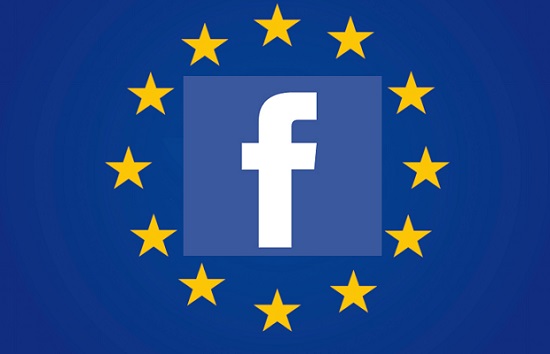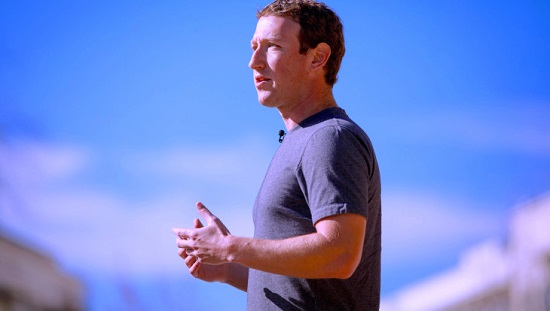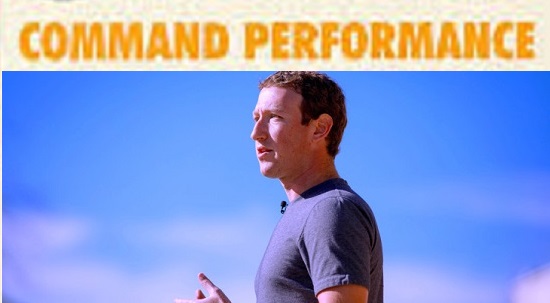Taking the venerable quote from Harry Truman,” If you cannot convince them, confuse them”, Facebook will change its coverage so that three-fourths of its total user base (including those in the United States and Canada) will not be able to file a complaint in Ireland, where Facebook’s international headquarters lies. So European Union residents are covered by the GDPR rules. This change will continue to keep Facebook in the news as being untrustworthy, and could cause the U.S. congress to add more stringent laws.
Monthly Archives: April 2018
First Privacy Regulation Announcement Timing Was Likely Triggered by Zuckerberg’s Grilling by U.S. Congress
Facebook and other tech giants have been fortunate that they had been essentially unregulated … until now. On April 11 we received an email titled “[Action Required] Important updates on Google Analytics Data Retention and the General Data Protection Regulation (GDPR)” from ‘Google Analytics’ analytics-noreply@google.com that presumably was received by billions of people with gmail email addresses or other Google associations. It alerts all of us of this data protection law affecting users based in the EU (European Union) that will be effective May 25, 2018.
We suspect that the vast majority of Internet-connected individuals had no clue that such a law was in the works, though they could hardly have missed the fact that Mark Zuckerberg was testifying in Washington, DC. Likely this mass email was intentionally timed to coincide with his testifying.
Do First Ask Forgiveness Later
Do First Ask Forgiveness Later
TechnologyBloopers Posting Photos / DoFirstAskForgivenessLater 1 550×311
Though some other observers have scorned the technology naivete of some of the legislators, we were generally impressed with the thoughtful questions that in general dug into the key issues—most notably privacy—that had forced Mark Zuckerberg to testify.
Doubtless the large majority of Facebook users never read Facebook’s Terms of Service (TOS), just like the user agreements of other memberships they pursue. When Technology Bloopers debuted, we carefully read the TOS and included some commentary under the “Social Networks” subheading of our “Villains” heading. We pointed out two notions that have turned out to be hugely important in the current dust-up: “Users of these social networks have accepted the Terms of Service (TOS) for them, giving them permission to do many things that, upon reflection, those users might actually not want done.” and “But it is hugely one-sided in that it talks about all the things that Facebook can do and not much about the things the Facebook customer can do. And it is hugely open-ended in that it cites examples of things that Facebook can do today or might do in the future, but places no limits on them. “
The tech giants are so powerful that they feel they can get away with taking actions without asking permission, then apologizing later. Again, we had reminded in our “Villains” subheading the famous quote from Lord Acton: “Absolute power corrupts absolutely”.
Facebook Is First to Testify, But All Tech Giants Are Liable to be Regulated
We admit to being generally anti- to social networks. In our view they are an unnecessary sugar coating of basic functionality already provided in a range of websites. Our views were included when we originally uploaded our TechnologyBloopers website in August 2014, which included our critical analysis of Facebook’s “Terms of Service”.
Among the tech giants Facebook has recently has become the poster child for taking the notion of “if something is not forbidden by law, then it is allowed”, replacing Google (which did things like copying millions of pages of books in the name of making knowledge available, but violating the copyrights of the authors). This behavior earned a “command performance” for Mark Zuckerberg with congress as the audience.
Tech Can Help or Hurt – Part 5: Angry YouTube Video Creator “Goes Postal”
Though YouTube was a great technological achievement by its original developers, more recently YouTube management has made a lot of video creators bitterly angry by their actions that started deliberately de-monetizing YouTubers since June, 2017. But not angry enough to shoot three YouTube employees at their San Bruno, CA headquarters and commit suicide on April 3, as Nasim Najafi Aghdam did. For many of these video producers, their anger was due to the pressure from advertisers who deplored YouTube’s running their ads preceding objectionable video content.
Unfortunately for a lot of people (including us at Technology Bloopers), in mid-2017, YouTube changed their monetization rules and instead of immediate monetization, they required that all YouTube channels had to exceed 10,000 views before they could make any money from advertisements that played in conjunction with their video creations. And in early 2018 YouTube upped their monetization ante by requiring each channel to have had 4,000 hours of watcher time during the preceding 12 months plus 1,000 subscribers. While there is no law against YouTube’s actions, many of these actions were a shock to the video creators—who had invested a lot of effort to produce entertaining or informative content and who highly valued—in monetary or artistic terms—a way to present them and some, like the YouTube shooter, relied on the income they received from monetizing their videos on YouTube..
The shooter felt that she had been especially victimized, not only by the numerical requirements that easily overwhelm small, independent video producers, but also by her perception of YouTube’s censoring of some of her content, and took revenge with a pistol. And the current vogue for shooting up a group perceived to be the reason for an individual’s economic or moral discomfort very likely gave her both a method and additional motivation.





